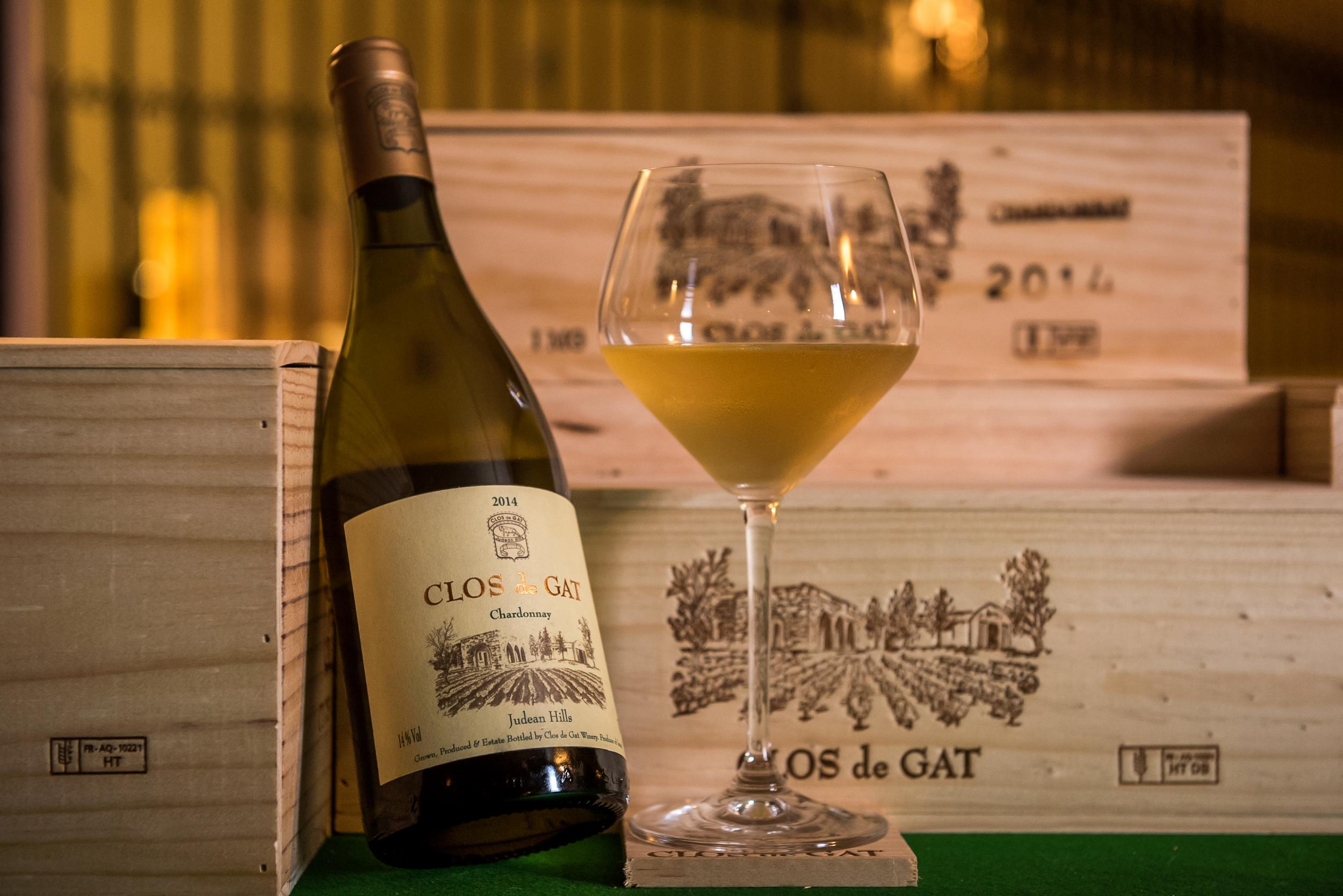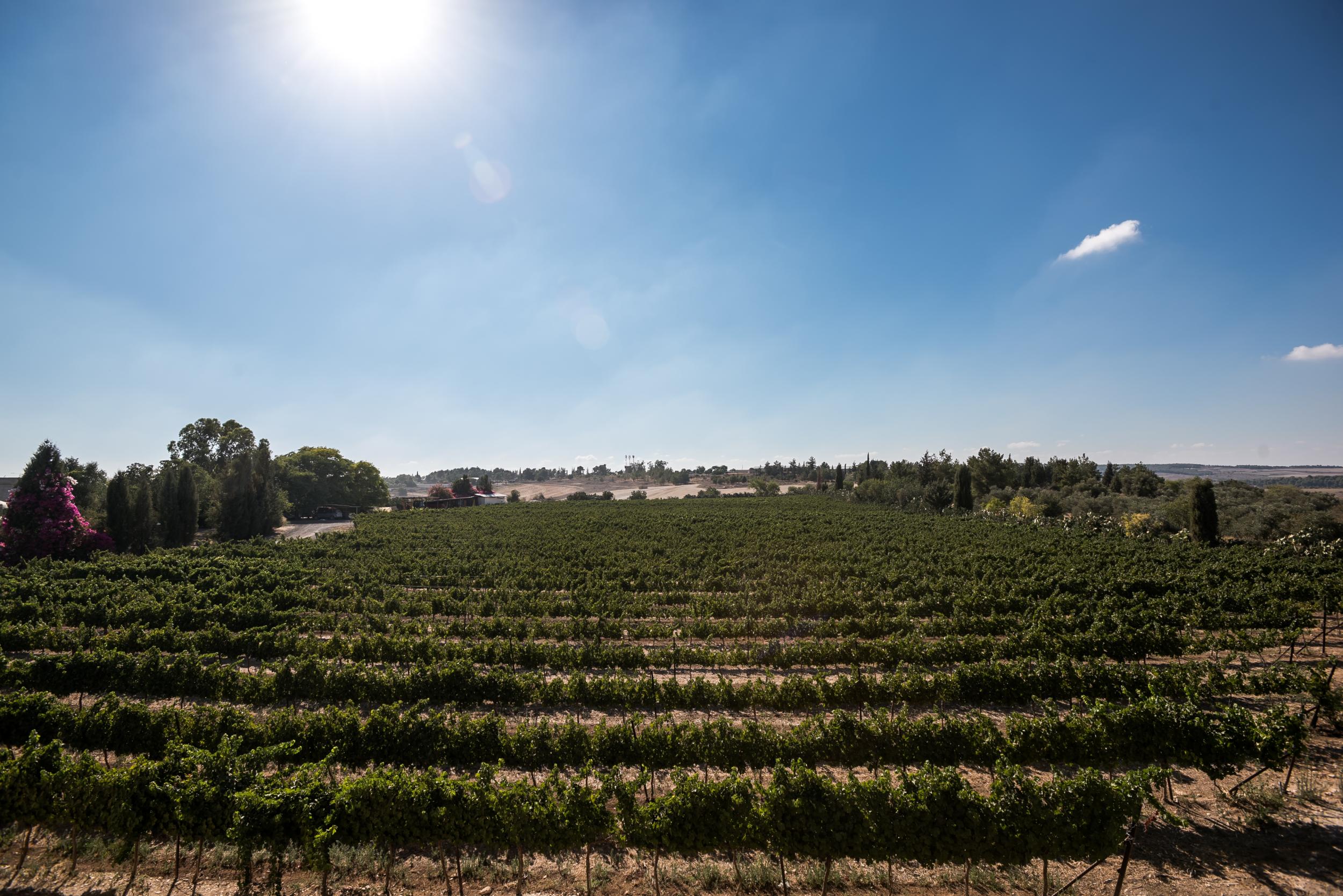How Israel's wine scene went from floundering to flourishing
The area that is now Israel was a major wine-producer in biblical times but the industry vanished for a millennium. Now a new generation, based in the boutique wineries of the Judean Hills, is putting its wines back on the map

“I like to call this the biblical wine tour,” says Alon Yitzhaki with rehearsed aplomb, as our SUV tackles the undulating Judean Hills, 45 minutes’ drive from Tel Aviv and Jerusalem. The car is weeks old, the landscape rolling by unfathomably so.
Squint and it could be Tuscany, vineyards unspooling beneath sun-dappled limestone formations topped by pines. One difference: the area was making wine way before that Italian upstart. “At one point we believe it was the region’s main industry,” says Yitzhaki. “The Romans loved the local wine and exported it across their empire. It was the Gatorade of ancient times.” But with alcohol production banned for a millennium under Muslim rule, until the mid-19th century, the native grapes withered.
Wine’s rebirth here dates from the return of European Jews to Palestine in the 19th century. Edmond de Rothschild, owner of France’s Château Lafite, founded Carmel Winery – still Israel’s second biggest wine producer – in 1882, with the bar-raising Golan Heights Winery following a century later.
Fast-forward to today, and Israeli wine, spread over 350 wineries and five regions, is the toast of oenophiles, with exports mainly focused on the US. A tour is the best way to try it. I’m in good hands with sommelier Yitzhaki, founder of Israel Wine Tour, who took to the drink aged six. “My Lithuanian grandma thought I should know about wine,” he explains. “She created a monster.”
While northerly winemaking regions Galilee and Golan Heights dominate Israel’s 55-million-bottle-a-year output, the boutique wineries of the Judean Hills (or “Bordeaux of ancient Israel”) are leading the quality revolution. At the first stop on our tour, Clos de Gat, I admire a 3,000-year-old wine press (“gat” in Hebrew) resembling a stone paddling pool. Such sites abound across the country.
The vineyard’s flagship 2012 Ayalon Valley, a Bordeaux-style red with a peppery Mediterranean kick, embodies Israel’s blend of old and new world. Wine is key to Jewish rituals, so most Israeli bottles are kosher (handled by observant Jews). It doesn’t affect flavour, but a history of dire kosher wine has left a sour aftertaste that Clos de Gat (non-kosher) wants to eradicate. “We’re trying to stand shoulder to shoulder with the best wineries in the world, not get lumped in with Brooklyn kosher shops,” says marketing manager Gidi White.

Clos de Gat inhabits a former HQ of ex-Israeli PM Yitzhak Rabin, three miles from the West Bank. The wineries of the Judean Hills, which also extend into the West Bank, are attracting praise for wines using native grapes, as opposed to Israel’s dominant French varietals. One standout winery is Recanati, which is run by Israelis using grapes grown by Palestinians in Hebron.
That’s not to say Palestinians aren’t creating their own fair share of quality wines. Cremisan, run by Italian priests, has been harvesting wine since 1885 and its bottles are stocked at Ottolenghi restaurants. It’s right on the border; while many of the grapes are grown on the Israeli side, production happens on the Palestinian side.
One particular thorn in Israeli winemakers’ sides is having to lease plots from the state, which owns almost all land and snubs the country’s wine scene. “The Australian government puts AS$8m [£4.4m] into marketing its wine,” says Yitzhaki. “What do we get? A kick in the butt.” Nonetheless the future looks fruitful. “With [chef] Ottolenghi, suddenly Israeli cuisine is popping up everywhere,” says White. “Through that people are discovering the wine.”

While monoliths dominate elsewhere, with Israel’s “big three” – Barkan, Carmel, Golan Heights – making 80 per cent of the country’s wine, the Judean Hills’ 30-odd vineyards have a long history of cooperation. Last year four of them formed the Judean Hills Quartet. “The idea was to tell the story behind this beautiful region that almost no one outside of Israel knows about,” says Eran Pick of Tzora Vineyards – although the area has experienced a slightly raised profile since wine critic Jancis Robinson’s visit.
Israel’s only Master of Wine, Pick symbolises the new wave driving its revival, having trained abroad at the University of California, Davis. All five of Tzora’s terroir-focused wines got an “outstanding” rating of 90-plus in Wine Spectator’s October 2016 Israel special. “Today we’re making much more fascinating wine,” says Pick. “People are amazed how quickly the quality has increased.”
Reds historically dwarfed whites but Quartet youngster Sphera (tagline: white wine professionals) has wowed Israeli sommeliers, doubling production since 2012. Oddly for a grape that flourishes in cool climes, its Riesling is a standout. “In this region we’ve got a microclimate, with cold wind coming from the Jerusalem Hills,” says founder Doron Rav Hon. Breezes from the nearby Mediterranean also ventilate grapes, harvested by night for further cooling.

Warm and down-to-earth, Rav Hon is a contrast to calm, collected ex-military helicopter pilot Pick. “Everybody put their egos aside, tastes together, travels together,” says Rav Hon of The Quartet (they’ll grace London’s Decanter Fine Wine Encounter in November). “It’s a first here and really exciting.”
Meanwhile, domestic wine consumption, albeit paltry, is increasing. Tel Aviv has a wine bar scene and, latterly, branch of top international wine school Wine and Spirit Education Trust. Not so long ago Rav Hon’s Friday night dinners were 15 minute eat-and-runs. “Now with wine they can go on for hours,” he says. “In Israel we see that changing a lot, mostly in big cities. There was no wine in our culture, so it’s something that we have to learn from scratch – but we’re learning fast.”

Six more must-visit Israeli wineries
Domaine du Castel
A boutique pioneer founded in 1988 by Eli Ben Zaken, father of the Judean Hills scene, with epic views. Try the red blends (the grand vin is a classic). Open Sunday to Thursday by appointment; £27 tour and tasting with cheese.
Pelter
In the Golan Heights but inspired by Australia’s quality, accessible wines, Israel’s biggest non-kosher winery (plus boutique distillery) produces 300,000 bottles a year. Try the sparkling wine. Open daily, 10am-4pm; £10 tour with tasting.
Somek
By pretty Zikhron Ya’akov, south of Haifa, fifth generation vintner Barak Dahan leads hour-long tours visiting the old-school barrel press. Try the incredible varietal carignan. Open daily, 9am-4pm, reserve in advance; £16 tour with tasting.
Galil Mountain
In the Upper Galilee, a high-tech winery co-run by Golan Heights Winery. Try rich reds (the 2013 yiron galilee is one of Wine Spectator’s top Israeli wines). Open Sunday to Thursday, 9am-5pm (Friday until 2pm); £4 tour with tasting.
Nevo
This winery has an epic backstory: dealing with wine helped winemaker Nevo’s aunt beat cancer, converting him.
Open daily by appointment except Saturday (closes early Friday); tours £13.
Yatir
An acclaimed winery by the ancient Tel Arad Fort in the Negev: the next frontier of Israeli wine. Grapes from the nearby Yatir forest result in aromatic, fruity wiogniers. Open by appointment; contact winery for hours and pricing.
Travel essentials
British Airways flies to Tel Aviv from £294 return. A bespoke day tour with Israel Wine Tour costs from £460 for two including tastings and a cheese plate, as well as being picked up and droped off anywhere in Israel.
Join our commenting forum
Join thought-provoking conversations, follow other Independent readers and see their replies
Comments
Bookmark popover
Removed from bookmarks